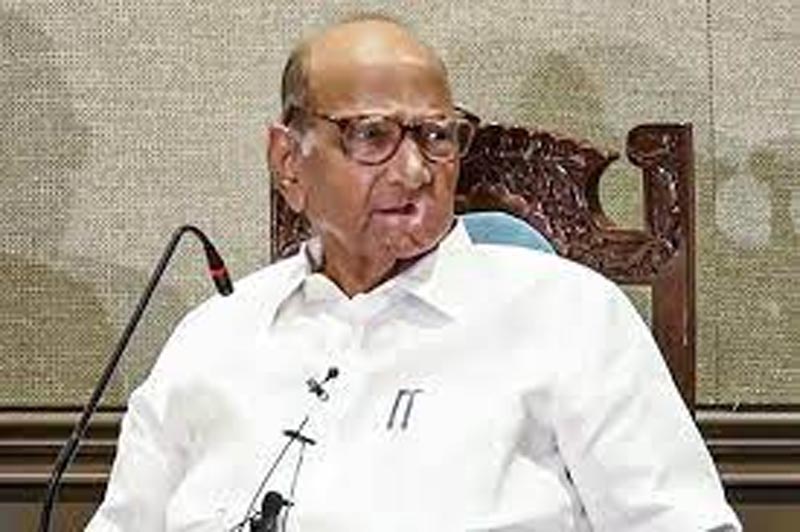MUMBAI, Sep 26: NCP chief Sharad Pawar today termed as painful the remark made by Prime Minister Narendra Modi on women’s reservation bill targeting the opposition, and said several women-centric decisions were taken during the previous Congress rule. Addressing a press conference here, the Nationalist Congress Party (NCP) founder listed a number of women-centric decisions taken by him when he was the chief minister of Maharashtra and as the defence minister.
Talking about the soured relationship between India and Canada, Pawar said as an Indian citizen, he would completely back the Indian government’s policy. Tensions flared between India and Canada following Canadian Prime Minister Justin Trudeau’s allegation of “potential” involvement of Indian agents in the killing of Khalistani extremist Hardeep Singh Nijjar, on his country’s soil on June 18. India had designated Nijjar as a terrorist in 2020.
The women’s reservation bill – Nari Shakti Vandan Adhiniyam – to reserve one-third of seats in the Lok Sabha and state assemblies for women received the parliamentary nod last week. On Monday, PM Modi said in poll-bound Madhya Pradesh that the Congress and its allies in the new “ghamandia” (arrogant) alliance supported the women’s reservation bill in Parliament “reluctantly”. Pawar said, “The prime minister’s remarks are painful. We (the opposition) whole-heartedly supported the bill.” He said that barring two members in the Lok Sabha, nobody else opposed the women’s reservation bill, and some parties had suggested that when a wide-ranging decision is taken, then Other Backward Classes (OBCs) should also be included in it.
Pawar added that on June 24, 1994, the Congress government headed by him in Maharashtra had unveiled a women’s policy which was the first in the country. The state was the first to have a women’s commission and a separate Women and Child Welfare Department was formed when he helmed the government in Maharashtra,” he noted. “Similarly, the Congress government at the Centre had brought the 73rd constitutional amendment, which paved the way for 33 per cent quota for women in local bodies,” he said.
Elaborating on the work done by him in the area of women empowerment as defence minister, Pawar said it was during his tenure the decision to give 11 per cent reservation to women in three services of the armed forces was taken. He said the decision was taken after much reluctance by the three service chiefs and he firmly put his foot down for 11 per cent reservation to women in armed forces. “Be it participation of women in the Navy, Army and Air Force or their reservation…all were done when Congress was in power. Unfortunately, it appears that no one briefed the prime minister about it which is why he made such remarks,” Pawar said.
Calling the imposition of 40 per cent export duty on onions as “injustice” to farmers, the former Union agriculture minister demanded its roll-back. Such decisions have an impact on other countries, Pawar said as he gave an example of Bangladesh. To a question whether India’s credibility as an onion exporter has taken a hit, Pawar replied, “Hundred per cent. India was a major supplier of onion to Bangladesh. We imposed a 40 per cent (export) duty and our export (to Bangladesh) has totally stopped.”
“There is a reaction in Bangladesh about India’s position. This type of decision definitely affects a country’s image and nobody thinks India is a reliable supplier and this is not at all good for the country, producer and trader.” Replying to a question on his recent meeting with industrialist Gautam Adani in Ahmedabad, Pawar said he had gone there to inaugurate an industrial unit belonging to a businessman from Baramati. Adani was the chief guest of the function held at Sanand industrial estate, he added. (PTI)


